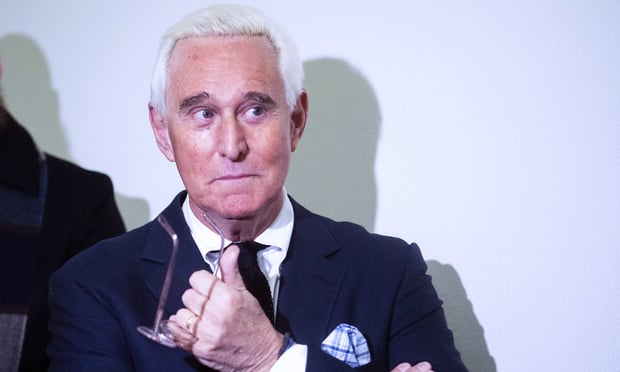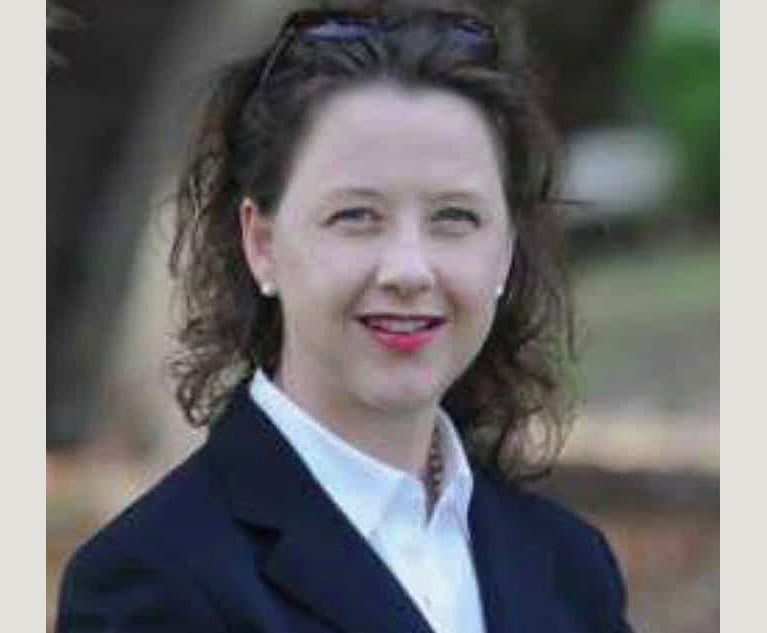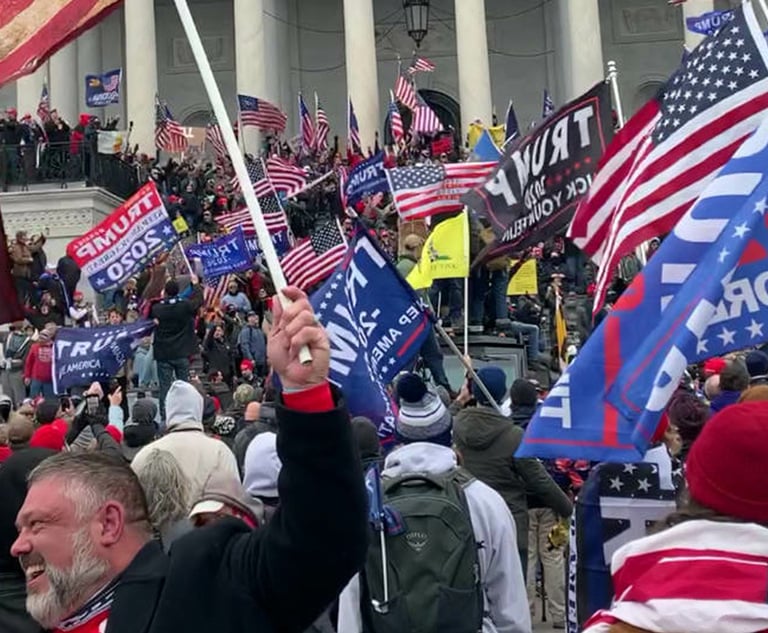Judge Warns Attorneys to Stay on Topic on Eve of Roger Stone's Trial
Judge Amy Berman Jackson reiterated that she has already blocked certain topics from coming up during trial.
November 04, 2019 at 01:08 PM
5 minute read
 Roger Stone, former Trump campaign adviser. Photo: Diego M. Radzinschi/ALM.
Roger Stone, former Trump campaign adviser. Photo: Diego M. Radzinschi/ALM.
U.S. District Judge Amy Berman Jackson of the District of Columbia has a clear message ahead of Roger Stone's trial this week: Stick to the subject.
During a final pretrial conference Monday, Jackson told attorneys for both the Justice Department and Stone that they need to remain focused on the allegations in the case once the trial starts. Jury selection is set to begin Tuesday.
"We're going to follow the rules," she said from the bench. She said that if an attorney started discussing an area that wasn't covered by the trial, she would "politely" call them up to the bench.
"If you continue to disobey orders, I'm not going to give you the courtesy of coming to the bench," Jackson said, adding, "there's plenty to try within the confines of those boundaries."
The judge noted that she has already ruled on blocking certain topics from coming up during trial, which she reiterated throughout the hearing. Jackson has previously struck down efforts from Stone's legal team to include evidence relating to Russian hacking during the 2016 election.
Stone is charged with making false statements to Congress and witness tampering. He has pleaded not guilty.
Ahead of the start of Stone's trial Tuesday, Jackson made most of her final rulings on what evidence will be admitted.
She ruled against some pieces of evidence that Stone's lawyers wanted to admit, like emails between Stone and Randy Credico, an expected witness. She did rule in favor of emails showing that Stone and Credico were in talks for Stone to appear on Credico's radio show.
Jackson put off a ruling on whether to admit a portion of the House Intelligence Committee's minority report on Russian election interference. While she did allow for the section of the report regarding Stone to be admitted, she questioned the relevance of other portions, like those on former Trump campaign adviser Carter Page.
Bruce Rogow, Stone's attorney, argued those sections showed the scope of the House investigation. He said the perception around any efforts to reach WikiLeaks, as Stone did, had "morphed" into the idea that the person had done something wrong or illegal.
Jackson, seeming a bit frustrated, said again that Stone wasn't charged with contacting WikiLeaks but with lying about those attempted contacts.
"You're the one who keeps putting Russian interference in play," she said.
Attorneys also discussed the kinds of questions that can be put to witnesses. Jackson raised a motion filed by government lawyers that sought to limit the scope of questioning for one witness, likely former White House chief strategist Steve Bannon.
Jackson noted that the motion was filed under seal, but that she had seen reports naming the witness. A person familiar with Bannon's expected appearance during the trial confirmed late last month that Bannon would be a government witness.
The judge said DOJ lawyers had asked to keep questions related to the person's time on the Trump campaign, as privilege issues could be raised about the person's work on the Trump transition team or at the White House.
Rogow confirmed that Stone's team did not plan to pursue those topics, but that they might raise questions about the person's testimony if it conflicted with other recent comments about the same topic.
The judge said she expected jury selection to finish Tuesday, but that she did not expect lawyers to make opening statements until Wednesday. If jury selection took more than a day, Jackson said, opening statements would take place after that ends Wednesday.
The lawyers also smoothed out final logistics with the judge for the trial. At one point, Rogow asked if Jackson could speak more closely into the microphone, as he was having trouble hearing her.
"No one's ever told me that they can't hear me before," Jackson said. "That's a new piece of information, and I will do that, best I can."
Read More:
Roger Stone's Lawyers Face Their Biggest Match Next: 12 DC Jurors
Steve Bannon Expected to Appear as Government Witness in Roger Stone's Trial
DOJ Wants to Show Jury Roger Stone Is a Bigger Liar Than He's Charged With Being
This content has been archived. It is available through our partners, LexisNexis® and Bloomberg Law.
To view this content, please continue to their sites.
Not a Lexis Subscriber?
Subscribe Now
Not a Bloomberg Law Subscriber?
Subscribe Now
NOT FOR REPRINT
© 2025 ALM Global, LLC, All Rights Reserved. Request academic re-use from www.copyright.com. All other uses, submit a request to [email protected]. For more information visit Asset & Logo Licensing.
You Might Like
View All
Ex-Prosecutor’s Trial Ends as Judge Throws Out Her Felony Indictment in Ahmaud Arbery Death Case


'You Became a Corrupt Politician': Judge Gives Prison Time to Former Sen. Robert Menendez for Corruption Conviction
5 minute read
‘Undermines the Rule of Law’: Retired US Judges Condemn Trump’s Jan. 6 Pardons
Trending Stories
- 1Snap Paid $63M in Fees to 2 Am Law 200 Firms in '24
- 2Lawyers Across Political Spectrum Launch Public Interest Team to Litigate Against Antisemitism
- 3Jones Day Names New Practice Leaders for Antitrust, Business and Tort Litigation and Latin America
- 4Russia’s Legal Sector Is Changing As Sanctions Take Their Toll
- 5Government Contracting Clients Look to Firms to Stay on Top of Trump Policy Changes
Who Got The Work
J. Brugh Lower of Gibbons has entered an appearance for industrial equipment supplier Devco Corporation in a pending trademark infringement lawsuit. The suit, accusing the defendant of selling knock-off Graco products, was filed Dec. 18 in New Jersey District Court by Rivkin Radler on behalf of Graco Inc. and Graco Minnesota. The case, assigned to U.S. District Judge Zahid N. Quraishi, is 3:24-cv-11294, Graco Inc. et al v. Devco Corporation.
Who Got The Work
Rebecca Maller-Stein and Kent A. Yalowitz of Arnold & Porter Kaye Scholer have entered their appearances for Hanaco Venture Capital and its executives, Lior Prosor and David Frankel, in a pending securities lawsuit. The action, filed on Dec. 24 in New York Southern District Court by Zell, Aron & Co. on behalf of Goldeneye Advisors, accuses the defendants of negligently and fraudulently managing the plaintiff's $1 million investment. The case, assigned to U.S. District Judge Vernon S. Broderick, is 1:24-cv-09918, Goldeneye Advisors, LLC v. Hanaco Venture Capital, Ltd. et al.
Who Got The Work
Attorneys from A&O Shearman has stepped in as defense counsel for Toronto-Dominion Bank and other defendants in a pending securities class action. The suit, filed Dec. 11 in New York Southern District Court by Bleichmar Fonti & Auld, accuses the defendants of concealing the bank's 'pervasive' deficiencies in regards to its compliance with the Bank Secrecy Act and the quality of its anti-money laundering controls. The case, assigned to U.S. District Judge Arun Subramanian, is 1:24-cv-09445, Gonzalez v. The Toronto-Dominion Bank et al.
Who Got The Work
Crown Castle International, a Pennsylvania company providing shared communications infrastructure, has turned to Luke D. Wolf of Gordon Rees Scully Mansukhani to fend off a pending breach-of-contract lawsuit. The court action, filed Nov. 25 in Michigan Eastern District Court by Hooper Hathaway PC on behalf of The Town Residences LLC, accuses Crown Castle of failing to transfer approximately $30,000 in utility payments from T-Mobile in breach of a roof-top lease and assignment agreement. The case, assigned to U.S. District Judge Susan K. Declercq, is 2:24-cv-13131, The Town Residences LLC v. T-Mobile US, Inc. et al.
Who Got The Work
Wilfred P. Coronato and Daniel M. Schwartz of McCarter & English have stepped in as defense counsel to Electrolux Home Products Inc. in a pending product liability lawsuit. The court action, filed Nov. 26 in New York Eastern District Court by Poulos Lopiccolo PC and Nagel Rice LLP on behalf of David Stern, alleges that the defendant's refrigerators’ drawers and shelving repeatedly break and fall apart within months after purchase. The case, assigned to U.S. District Judge Joan M. Azrack, is 2:24-cv-08204, Stern v. Electrolux Home Products, Inc.
Featured Firms
Law Offices of Gary Martin Hays & Associates, P.C.
(470) 294-1674
Law Offices of Mark E. Salomone
(857) 444-6468
Smith & Hassler
(713) 739-1250








